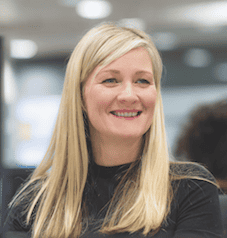
We are living in a pivotal moment in medical history. The first wave of personalised medicines is now available and is changing the way diseases are identified and treated. With this comes an inevitable shift in how pharma interacts with healthcare professionals (HCPs). Innovation in healthcare – from treatments, delivery systems and health technology – has heralded the dawn of a new age in medical education.
As specialists in our field, we need to be a step ahead of the game, ensuring we are delivering programmes that enable engagement that improves long-term healthcare outcomes.
Innovation is not without its challenges
Let’s take haematology as our case study; there has been a flurry of revolutionary cell therapies to treat blood cancers, including CAR-T therapies. However, due to limited clinical experience there are a limited number of self-professed ‘experts’ who are able to share their clinical knowledge.
Furthermore, access to real-world experience with these new treatments is disparate – with treatment centres few in number, or a significant distance away in larger cities. Yet, to ensure patients continue to receive the best quality care, it is of paramount importance that HCPs are able to share their clinical knowledge and teach others, overcoming geographical barriers.
As medical education specialists, we need to view these novel situations through a different lens; finding alternative teaching methods to provide the best training ground for doctors and other HCPs will be vital to ensure they gain the essential experience needed to become our solid healthcare providers of the future.
So where does industry come in?
In this fast-changing world, pharmaceutical companies are having to rethink how they work with physicians to support them in the use of these new therapies, where the administration is not as simple as ‘take a pill’ and the needs of the HCP are very different.
This shift to a more symbiotic relationship, where pharma is needed to guide in-centre set-up and to support the building of supportive communities, will pose interesting challenges and opportunities for the pharma world where it is hoped that new even stronger partnerships will be built, working more closely together than ever before.
What do we need to do as medical education practitioners?
With all this change afoot, it is essential that we adapt in parallel. This exciting new world brings things of wonder for us – to see renewed hope in the eyes of physicians who have run out of treatment options for the child with recurrent leukemia; to meet HCPs who are eagerly sharing knowledge and personal clinical experience and learning from each other and pharma; and those who are striving to be part of the innovation that will inevitably be woven into the solutions to address the new challenges on the horizon.
In the genesis of all this excitement, it will be crucial for us as consultants to ensure we create solutions that answer these new challenges.
We need to provide the foundations to build new communities (either virtual or in-person) where information, knowledge and experience can be shared in real-time. We can gain insights on how to effectively engage HCPs and patients by looking to the everyday online activity of millions around the globe – social platforms have created active online patient communities that are often the main sources of information with people turning to their ‘family of invisible friends’.
Access to such forums has facilitated real-time communication and the ability to connect to others, as well as producing new ways for information to be exchanged and shared.
It will be interesting to see how new communication approaches in healthcare will gather momentum, and which will work best in the HCP population when considering the specific needs of HCPs delivering often complex personalised medicine.
I am certainly excited and curious to see what happens in the next couple of years as we look beyond the obvious to explore areas outside healthcare for fresh thinking and to focus on the problem that needs to be solved. We will need to be broader and more inclusive, but also more targeted, in what we achieve.
Annlouise Pendse is Associate Director at Real Science Communications, a Publicis Health company





